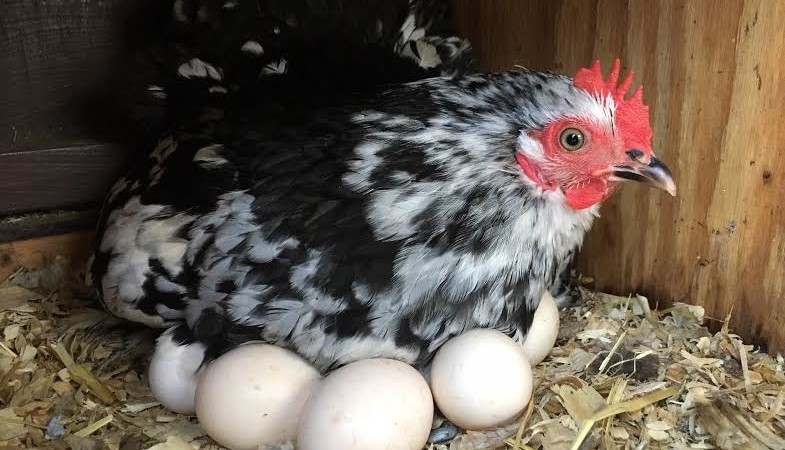

Having a hen go broody can be a good thing if you are trying to hatch chicks. If chicks are not in the cards, however, and the eggs on which your hen is sitting are not fertile, having her go broody has the potential to be a headache for the both of you.
In the case of you as a chicken owner, you now have to convince her to give up sitting on the nest, and she as a chicken has to deal with her maternal instincts and hormones while someone tries to discourage her idea of what comes naturally.
Many modern breeds are not typically as broody as chicken generations past, but that does not mean broody hens do not happen. The most obvious sign of broodiness is hens that do not want to leave the nest as well as those that puff up and vocalize when you attempt to get close and retrieve eggs. Hens will also pull their breast feathers as a means to keep their eggs and resulting chicks closer to their skin to transfer warmth.
Rather than going outside with the rest of the flock, a broody hen will also prefer to stay in the nest.
Broody hens can be a problem for several reasons. Since broody hens devote almost all of their time and energy to nesting and very little to eating and drinking, they can lose weight and become malnourished.They also have a tendency to become alienated from the rest of the pack and as a result may get pecked at while in the nest as a means of encouragement to leave it.
Broody hens, even once you get them off of their eggs, may take a while to return to laying due to maternal inclinations shutting the egg laying pipeline down for the duration of time expected for egg hatching (21 days) and follow up chick mothering.Worst of all, possibly, is that a broody hen can also take over the nest to prevent other hens from laying or take them on a broody adventure right along with her. The desire to be a mother is contagious, it may seem. Sometimes hens that have gone broody will come out of it once you remove the eggs from her possession, but others take a little more effort.
To start, try collecting her eggs as quickly and often as possible, a task that may require gloves due to the possibility of her pecking at you.
If that does not do the trick, progress to removing her from the nest and placing her in an area far away with food and treats to distract her, repeating this process several times if necessary.
Should she persist, consider blocking her nest, moving it, or removing bedding as all of these things can act as a deterrent due to the preference of a chicken to maintain occupying a specific nest. The signal to mother seems to stem from a warm vent, so cooling the vent is a step you can take to discourage maternal urges. If you discover a broody hen, it is best to get on top of discouraging her as soon as possible.
In addition to the issues mentioned above, broody hens are also more prone to contracting mites and other parasites while they sit.They are also socially deprived, having to re-enter the flock and reestablish their role in the pecking order upon leaving the nest.
Dealing with a broody hen can be frustrating and time consuming, so making efforts to avoid breeds known to go broody Regardless of breed choice, be on the lookout for broody hens as the warm weather starts to roll in so you can be ready for any maternal instincts that could be heading your way.
 Contact Jaguza Support
Contact Jaguza Support